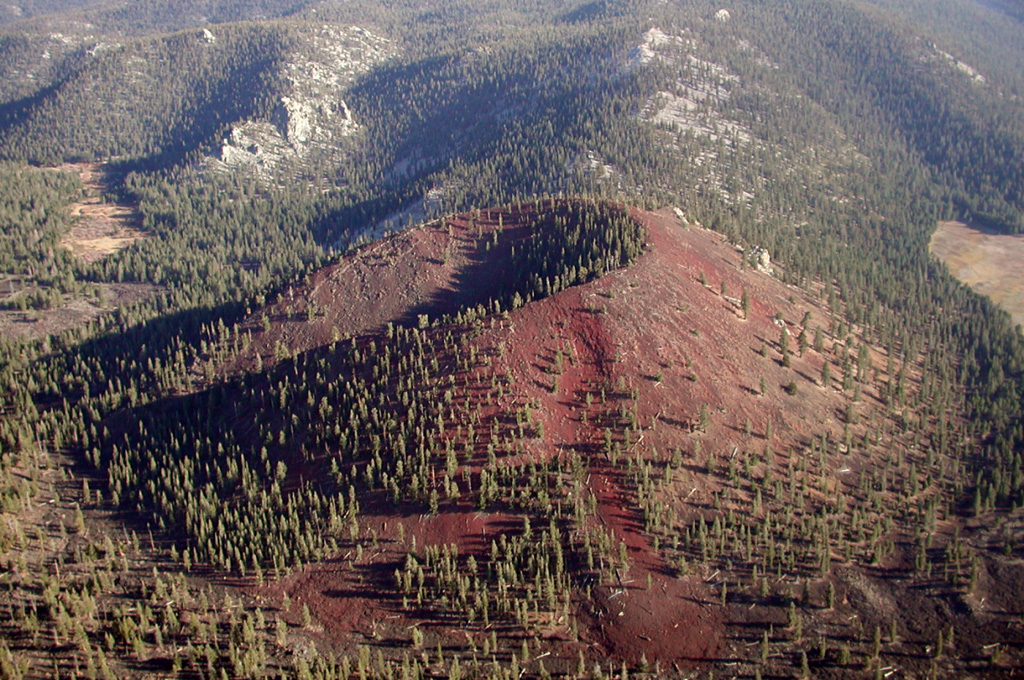Image GVP-10244

Groundhog cinder cone, the youngest of the Golden Trout Creek volcanic field, is breached to the NE. Groundhog cone was the source of a Holocene lava flow that traveled 6 km to the west down Golden Trout Creek The volcanic field consists of a group of Quaternary alkali olivine basaltic cinder cones and lava flows in the Sierra Nevada about 25 km south of Mount Whitney. Lava flows erupted through light-colored Mesozoic granitic rocks of the Sierra Nevada batholith visible behind Groundhog cone and on its upper right side.
Photo by Rick Howard, 2002 (courtesy of Del Hubbs, U S Forest Service).
![]() This image is made available under the Creative Commons BY-NC-ND 4.0 license terms.
This image is made available under the Creative Commons BY-NC-ND 4.0 license terms.

Golden Trout Creek
